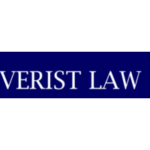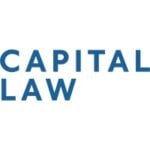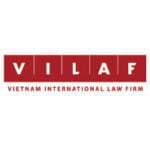-
Please briefly describe the regulatory framework and landscape of both equity and debt capital market in your jurisdiction, including the major regimes, regulators and authorities.
Belgium being a member state of the European Union (EU), the regulatory framework for equity and debt capital markets transactions is governed by EU regulations and directives, as well as national legislation and regulatory instruments.
The main EU regulatory rules to be considered, are Regulation (EU) No 2017/1129 on the prospectus to be published when securities are offered to the public or admitted to trading on a regulated market (the Prospectus Regulation) and Regulation (EU) No 596/2014 on market abuse (the Market Abuse Regulation or MAR) and the Directive 2014/65/EU on markets in financial instruments (MiFID II). These have recently been (and will further be) amended following the implementation of Regulation (EU) 2024/2809 to make public capital markets in the Union more attractive for companies and to facilitate access to capital for small and medium-sized enterprises (the EU Listing Act).
At national level, the key applicable laws and regulations are the Belgian Companies and associations code (BCAC), its implementing Royal Decree, the Act of 11 July 2018 on the offering of investment instruments to the public and the admission of investment instruments to trading on a regulated market (the Prospectus Act), the Act of 2 May 2007 on the disclosure of significant shareholdings (the Transparency Act) and the Royal Decree of 14 November 2007 on the obligations of issuers of financial instruments admitted to trading on a regulated market (the Transparency Royal Decree). In addition, public takeover bids are governed by the Act of 1 April 2007 on public takeover bids (the TOB Act) and the Royal Decree of 27 April 2007 on public takeover bids (the TOB Royal Decree).
Euronext Brussels is the regulated market in Belgium. In addition, Euronext operates several multilateral trading facilities (MTFs) with lighter regulatory requirements than Euronext Brussels. These MTFs are Euronext Growth Brussels, for high-growth SMEs, Euronext Access+ Brussels, for start-ups and fast-growing SMEs, and Euronext Access Brussels, for start-ups and SMEs.
The Belgian Financial Services and Markets Authority (FSMA) and the National Bank of Belgium (NBB) are the supervising authorities for the Belgian financial sector, whereby the FSMA is the main regulator and the NBB is the prudential supervisor. Furthermore, the European Securities and Markets Authority (ESMA) is the EU’s financial market’s regulator and supervisor who works closely with the Belgian regulators, such as the FSMA, to ensure harmonized application of the EU rules.
-
Please briefly describe the common exemptions for securities offerings without prospectus and/or regulatory registration in your market.
As a general rule, securities may only be offered to the public following the prior publication of a prospectus. Belgian issuers hereby need to respect the language regulations in Belgium. A public offer is defined as the communication, directly or via financial intermediaries, to persons in any form and by any means, presenting sufficient information on the terms of the offer and the securities to be offered, enabling an investor to decide to purchase or subscribe for those securities.
The following offers of securities are, however, under the Prospectus Regulation, not considered public offerings triggering the prospectus requirement:
- an offer of securities solely addressed to qualified investors;
- an offer of securities to less than 150 persons, other than qualified investors, per EU member state;
- an offer of securities amounting to at least EUR 100,000 per unit (denomination per unit);
- an offer of securities to investors who invest at least EUR 100,000 per separate offer; and
- an offer of securities from a crowdfunding service provider authorized under Regulation (EU) 2020/1503 not exceeding the threshold laid down in Article 1(2)(c) of that Regulation.
The Prospectus Regulation (as amended following the (staggered) entry into force of the EU Listing Act) and Prospectus Act provide for exemptions to the prospectus requirement.
The prospectus obligation does, for example, not apply to offers amounting to a total consideration over 12 months not exceeding EUR 5,000,000 (or EUR 8,000,000 insofar as the offer relates to investment instruments that are (to be) admitted to trading on an MTF) that were not passported cross-border pursuant to article 25 Prospectus Regulation. However, an information note is to be published and deposited with the FSMA in case of such an offer, which is a less extensive information document than a prospectus.
In addition, the following offers are also exempt from the obligation to publish a prospectus:
- a public offer of securities fungible with those already admitted to trading on the same regulated market, insofar as (i) the securities represent, over 12 months, less than 30% of the number of securities already admitted to the same market, (ii) the issuer is not subject to restructuring or insolvency proceedings, and (iii) a short-form information document (a so-called “Annex IV”) is prepared and published;
- a public offer of fungible securities by issuers whose securities have been continuously traded on a regulated market for at least 18 months, insofar as (i) the securities are not issued in connection with a takeover by means of an exchange offer, merger or division, (ii) the issuer is not subject to a restructuring or to any insolvency proceedings, and (iii) a short-form information document is prepared and published;
- securities offered or (to be) granted to existing/former directors or employees by their employer/an affiliated undertaking, insofar as an information document is provided to such investors;
- securities offered in connection with a takeover by means of an exchange offer or securities offered or (to be) granted in connection with a merger or division, insofar as an information document is provided;
- non-equity securities continuously/repeatedly issued by a credit institution amounting to less than EUR 150,000,000 per credit institution over 12 months, provided that the securities (i) are not subordinated, convertible or exchangeable, (ii) do not give a right to subscribe/acquire other types of securities and (iii) are not linked to a derivative instrument;
- issuance of same class shares as a form of distributing dividends, known as “optional dividend”, to be paid out to existing shareholders of a certain class of shares, insofar as an information document is provided;
- issuance of shares in substitution for already existing same class shares, insofar as the issuing does not trigger a capital increase; and
- Belgium also provides a full exemption from both the prospectus and the information note requirements for offers with a total value of less than EUR 500,000 across the EU over a 12-month period, provided that each investor is limited to a maximum subscription of EUR 5,000.
-
Please describe the insider trading regulations and describe what a public company would generally do to prevent any violation of such regulations.
The Market Abuse Regulation establishes a comprehensive framework governing the treatment of inside information, which is defined as (i) information of a precise nature, (ii) that has not been disseminated to the public, (iii) that directly or indirectly concerns one or more issuers of financial instruments (to be) admitted to trading, and (iv) that, if publicly disclosed, would be likely to exert a significant influence on the trading price of such financial instruments or related derivative instruments.
The principal obligations under the MAR encompass the following:
- prohibition of insider dealing and of unlawful disclosure of inside information (article 14 MAR), as well as the prohibition of market manipulation (article 15 MAR);
- obligation of immediate public disclosure of inside information (article 17 MAR);
- maintenance and updating of an insider list (article 18 MAR);
- requirement to notify any personal transactions in the issuer’s financial instruments for persons discharging managerial responsibilities within the issuer (PDMRs) and persons closely associated with them (PCAs) (article 19 MAR) (pursuant to the implementation of the EU Listing Act, the default threshold to exempt from this obligation was increased to EUR 20,000, however leaving the option to the EU member states to adopt a threshold varying between EUR 10,000 and EUR 50,000); and
- prohibition to trade during closed periods imposed on PDMRs and PCAs (article 19(11) MAR).
Under MAR, an issuer shall in principle inform the public as soon as possible of inside information that directly relates to it. However, immediate disclosure of inside information may be delayed insofar (i) such disclosure is likely to prejudice the legitimate interests of the issuer or emission allowance market participant, (ii) the delay is not likely to mislead the public and (iii) the issuer can ensure the confidentiality of the inside information.
If the inside information is related to intermediate steps in a protracted process (e.g., in an M&A context), disclosure may however be delayed without compliance to the above requirements. These intermediate steps do not need to be disclosed, but they do remain inside information, meaning that the confidentiality obligation remains applicable. In such circumstances, the issuer only has an obligation to disclose the inside information as from the final event. This was introduced by the EU Listing Act, as previously the criteria to delay disclosure had to be respected at every stage of a protracted process.
Eventually, once the delayed information is published, the FSMA must be informed immediately of the delay and of the reasons why.
Furthermore, as of 5 June 2026, pursuant to the implementation of the EU Listing Act, the second condition in order to delay disclosure will be replaced by ‘(ii) the inside information is not in contrast with the latest public announcement or other type of communication by the issuer or emission allowance market participant on the same matter to which the inside information refers’.
MAR further introduces an optional market sounding regime permitting disclosure prior to the public announcement of a potential transaction to certain investors to gauge such investors’ interest if certain conditions are met.
Finally, MAR provides for a safe harbor for share buy backs provided that certain conditions are met.
To prevent any violation of these regulations, a public company will typically (have to) draw up insider lists and implement internal dealing codes of conduct that set out clear rules on a delayed information procedure (often supported by setting up a MAR or disclosure committee), how to prevent insider trading and how to facilitate compliance with any notification requirements. Moreover, public companies will ensure that all staff having access to inside information are comprehensively trained and are fully informed of their obligations under MAR and in accordance with the applicable internal codes of conduct, if any.
-
What are the key remedies available to shareholders of public companies / debt securities holders in your market?
Shareholders of public companies in Belgium are granted certain rights by law. In particular, the BCAC grants, amongst others, the following rights to shareholders (or group of shareholders) of listed companies:
- in relation to the general shareholders’ meetings: attendance right, voting right (generally one vote per share, though exceptions may apply, g., see Question 7), right to convene a meeting and right to request additional items on the agenda;
- information rights, including access to documents prepared for the annual general shareholders’ meeting and special board reports, such as those related to the alarm bell procedure;
- right to file a corporate claim, including minority claims, on behalf of the company against its directors;
- a preferential subscription right upon issuance of new shares; and
- the right to request voluntary dissolution of the company.
While some of these rights are granted to a shareholder irrespective of the number of shares it holds (such as information rights and voting rights), certain other rights are only conferred to a shareholder (or group of shareholders) holding a certain minimum number of voting rights or meeting other criteria (such as the right to convene a shareholders’ meeting).
For more details on protections for minority shareholders of listed companies, please refer to Question 10.
BCAC also foresees in specific default rules for the general meeting of bondholders.
Unless otherwise provided in the terms and conditions of the bond, bondholders may propose amendments to these bond terms and conditions within the limits of the law (e.g., extending repayment deadlines or adjusting interest payments). Furthermore, they may also take provisional measures if needed, and have the right to convene and attend the general meeting of bondholders, where a proposal is adopted upon at least a 75% majority of the votes cast.
-
Please describe the expected outlook in fund raising activities (equity and debt) in your market in 2025.
While 2025 may see modest upticks in capital markets transactions (including one recently launched IPO), the Belgian ECM/DCM market is not expected to reach a full rebound in 2025.
-
What are the essential requirements for listing a company in the main stock exchange(s) in your market? Please describe the simplified regime (if any) for company seeking a dual-listing in your market.
As mentioned in Question 1, Euronext Brussels is the regulated market in Belgium. Moreover, for small and medium-sized enterprises and start-ups, the relevant MTFs are Euronext Growth Brussels, Euronext Access+ Brussels and Euronext Access Brussels.
For a company to be listed on Euronext Brussels, the company needs to submit an application for admission to trading on Euronext Brussels.
This application, and approval thereof, is in principle subject to the requirement to publish a prospectus. Yet, it is not required to publish a prospectus in the following circumstances:
- an admission to trading of securities fungible with those already admitted to trading on the same regulated market, insofar as (i) the securities represent, over 12 months, less than 30% of the number of securities already admitted to the same market, (ii) the issuer is not subject to restructuring or insolvency proceedings, and (iii) a short-form information document (a so-called “Annex IV”) is prepared and published;
- an admission to trading of fungible securities by issuers whose securities have been continuously traded on a regulated market for at least 18 months, insofar as (i) the securities are not issued in connection with a takeover by means of an exchange offer, merger or division, (ii) the issuer is not subject to a restructuring or to any insolvency proceedings, and (iii) a short-form information document is prepared and published;
- an admission to trading of securities (to be) granted to existing/former directors or employees by their employer/an affiliated undertaking, insofar as an information document is provided to such investors;
- an admission to trading of securities in connection with a takeover by means of an exchange offer or an admission to trading of securities (to be) granted in connection with a merger or division, insofar as an information document is provided;
- non-equity securities continuously/repeatedly issued by a credit institution amounting to less than EUR 150,000,000 per credit institution over 12 months, provided that the securities (i) are not subordinated, convertible or exchangeable, (ii) do not give a right to subscribe/acquire other types of securities and (iii) are not linked to a derivative instrument;
- admission to trading of same class shares as a form of distributing dividends, known as “optional dividend”, to be paid out to existing shareholders of a certain class of shares, insofar as an information document is provided;
- admission to trading of shares in substitution for already existing same class shares, insofar as the issuing does not trigger a capital increase;
- admission to trading of shares of the same class resulting from conversion, exchange or exercise of rights of other securities representing less than 30% of shares of the same class already admitted to trading on the same regulated market over 12 months, insofar as an information document is provided;
- admission to trading of shares offered or (to be) allotted free of charge to existing shareholders of the same class of shares as the shares already admitted to trading on the same regulated market, insofar as an information document is provided; and
- admission to trading of securities resulting from the conversion or exchange of other securities, own funds or eligible liabilities by a resolution authority due to the exercise of a power referred to in certain provisions of the Directive 2014/59/EU (i.e., Bank Recovery and Resolution Directive).
Furthermore, pursuant to article 25, §2, part 1, last sentence of the Act of 21 November 2017 on infrastructures for markets in financial instruments, the FSMA may object to the admission to trading if it considers that the issuer’s situation is contrary to the interests of investors.
For an admission to trading it is, amongst others, required that:
- the company has issued financial accounts in accordance with the International Financial Reporting Standard (IFRS) or an equivalent accounting standard for the preceding thee financial years;
- the company appoints a listing agent for the first admission and for every subsequent admission (should an approval of a prospectus be required);
- the shares are freely transferable and negotiable;
- the market capitalization value of the securities or bonds is at least EUR 5,000,000;
- there is a distribution to the public of at least 25% of the subscribed share capital (without prejudice to the discretionary authority of Euronext Brussels to lower this percentage, with the lowest being 5% of the subscribed capital and representing at least EUR 5,000,000).
Once listed on Euronext Brussels, the company must obtain and maintain a Legal Entity Identifier code (LEI).
The listing procedures are simplified for initial admissions to Euronext Growth Brussels, Euronext Access+ Brussels, and Euronext Access Brussels.
The same goes for companies already listed on another regulated market that want to be listed on Euronext Brussels, also known as dual-listing. For example, a prospectus that has been approved by the competent authority in another European Economic Area (EEA) country, may be “passported” into Belgium.
-
Are weighted voting rights in listed companies allowed in your market? What special rights are allowed to be reserved (if any) to certain shareholders after a company goes public?
Belgian listed companies are not allowed to issue multiple voting shares. Nevertheless, the BCAC permits listed companies to grant a double voting right to fully paid-up shares that are held continuously for at least two years by the same existing shareholder(s), known as “loyalty voting shares”.
This position is set to change following the implementation of the EU directive on multiple-vote share structures (MVS Directive), introduced as a part of the EU Listing Act package. The MVS Directive will permit the issuance of multiple voting shares by SMEs seeking admission to trading on a multilateral trading facility. The idea is to enhance the attractiveness of listing for SMEs by enabling them to maintain control over their company.
Despite the availability of loyalty voting shares and the general protections granted to minority shareholders under the BCAC, it is currently not allowed to grant other special rights to shareholders.
-
Is listing of SPAC allowed in your market? If so, please briefly describe the relevant regulations for SPAC listing.
The listing of special purpose acquisition companies (SPACs) is, as a matter of principle, permitted under Belgian law.
The offering of SPAC shares to the public and the listing of these shares on a regulated market or MTF is subject to the same legal framework as set forth above for any other securities offering and admission to trading.
The FSMA has, in addition, established certain minimum standards for founders and sponsors concerning the governance structure of SPACs, disclosure requirements relating to SPAC shares and the trading of SPAC shares on Euronext Brussels. These minimum standards are rather strict and where not met, founders and sponsors must clearly disclose this in the prospectus or information note. These standards include:
- the governance structure must safeguard investors against conflicts of interest, notably by empowering the general shareholders’ meeting to decide whether to approve the proposed business combination;
- at the time of the business combination, the FSMA considers it appropriate to grant a redemption option to investors who voted against the transaction, providing protection against dilution;
- the SPAC prospectus or information note must describe multiple dilution scenarios and specify the required rate of return to offset investor dilution, including a clear warning on the cover page directing readers to the dilution section; and
- SPAC shares traded on Euronext Brussels must carry a notice indicating they are reserved for professional investors; however, this does not preclude retail investors from acquiring such shares (either through their financial institution which must assess the investor’s knowledge and experience before executing the order, either through discretionary portfolio management or investment advice, provided suitability conditions are met).
Finally, Euronext Brussels maintains a dedicated segment for such companies known as the “SPAC Group”. If securities are restricted to this SPAC Group, subscription is limited to professional investors within the meaning of MiFID II. The transfer of SPAC securities in this group may be subject to additional conditions imposed by the FSMA. Once a SPAC (i) completes a business operation with an operational company such as via a merger or an acquisition and (ii) makes a mandatory prospectus available (or if not mandatory, an information document), the SPAC is removed from this SPAC Group.
-
Please describe the potential prospectus liabilities in your market.
The Belgian prospectus liability regime is primarily governed by the Prospectus Act, which imposes joint and several liability for the accuracy, completeness, and non-misleading character of the prospectus (or information note) and related communications.
The prospectus submitted for approval to the FSMA must clearly identify the individuals or entities responsible for the content of the prospectus. It must include a declaration stating that, to the best of the responsible persons’ knowledge, the information provided is accurate and complete. In the event of a liability claim, responsibility may extend only to the issuer, its administrative, management or supervisory bodies, the offeror, the applicant for admission to trading, or the guarantor.
Sanctions that may be imposed depend on whether the liability arises from a breach of the Prospectus Act, and include the following:
- administrative sanctions imposed by the FSMA, such as suspension of the listing of securities, fines of up to EUR 5,000,000 or 3% of total annual revenue for legal entities, and up to EUR 700,000 for natural persons. It should be noted that the FSMA often permits settlements;
- criminal penalties including fines amounting to EUR 15,000 or imprisonment ranging from one month to nine years;
- the acquisition or subscription may be declared null and void by a court if, for example, the prospectus obligation has not been fulfilled; and
- civil liability claim under certain conditions.
If a sanction is imposed, this is typically published on the website of the FSMA.
-
Please describe the key minority shareholder protection mechanisms in your market.
In addition to the protections set out in Question 4, minority shareholders benefit from specific safeguards under the mandatory public takeover bid regime (also addressed in Question 15). This regime requires any person acquiring 30% or more (or 50% or more in the case of Euronext Growth Brussels) securities with voting rights of a Belgian company admitted to trading on Euronext Brussels (or Euronext Growth Brussels) to launch a takeover bid for all securities conferring voting rights. Another safeguard exists in the event of a sale of assets representing 75% of the public company’s total assets (see Question 11).
The MVS Directive will also impact the position of minority shareholders by introducing safeguards in the general shareholders’ meeting decision-making process, including restrictions on qualified majority decisions and capping voting rights ratios based on the comparative value of votes per share held by existing versus new shareholders
-
What are the common types of transactions involving public companies that would require regulatory scrutiny and/or disclosure?
Major shareholdings in a listed company should be disclosed to the FSMA and the issuer. Each time a voting rights threshold (5% and subsequent increments of 5 percentage points) is crossed upwards/downwards, the investor needs to notify the issuer and the FSMA of the total amount of voting rights it is holding in the issuer. This obligation arises not only from direct acquisitions or disposals but also from indirect holdings (such as controlled entities or third parties acting on the investor’s behalf), concerted action agreements, derivative financial instruments conferring voting rights, and even in the absence of a transaction (e.g., following a capital increase or other corporate events). It is common and permissible within the limits of the law to also have lower thresholds imposed by the articles of association of the issuer, being 1%, 2%, 3%, 4% or 7,5%.
Within three trading days of receiving such notification, the issuer must publish a press release disclosing the relevant information contained in the notification.
A press release must also be issued when a company lists securities for the first time and at the end of each calendar month during which there has been an increase or decrease in the total share capital, the number of securities conferring voting rights, or voting rights per category of the listed company.
Another transaction requiring regulatory scrutiny or disclosure involves the sale of assets representing 75% of the public company’s total assets. Pursuant to Article 7:151/1 BCAC, such decision requires a simple majority vote of the shareholders, provided the board of directors has justified the contemplated sale in a special board report. The same goes for related party transactions that also require a specific procedure to be followed (see Question 12).
In addition, the FSMA issues additional guidelines concerning certain corporate actions, including, but not limited to:
- buy-back programs: the FSMA must be notified of their implementation along with a copy of the general shareholders’ meeting’s resolution; and
- capital increase within the authorized capital: any special reports prepared in this context must be disclosed publicly.
-
Please describe the scope of related parties and introduce any special regulatory approval and disclosure mechanism in place for related parties’ transactions.
Related party transactions are transactions concluded between a listed company and a related party to it, as defined by IAS24 (i.e., any person or entity that exercises control, joint control, or significant influence over the company, that is part of its key management, or is a close family member of such individuals. It also includes entities under joint control, subsidiaries, parent companies, associates, or joint ventures. An associated undertaking is any entity (excluding subsidiaries or joint subsidiaries) in which another company holds a participation and exercises significant influence (i.e., the power to participate in financial and operational policy decisions without control, which under the BCAC is presumed when holding at least 20% of the voting rights).
Related party transactions must be approved in a strict procedure that requires (i) a written opinion by a committee of three independent directors who may be assisted, if they consider it necessary, by independent experts, (ii) a decision by the board of directors, taking into account the opinion, and (iii) a statement of the statutory auditor confirming that there are no material inconsistencies between the financial and accounting information used in the committee’s opinion and the decision of the board of directors. This procedure also entails specific annual reporting obligations.
The decision regarding the related party transaction must be published at the latest at the moment the decision is taken or the transaction is concluded.
Non-compliance with the procedure may result in the nullity of the transaction, if it can be demonstrated that the related party knew or should have known of the violation at the time of concluding the transaction.
Even if the procedure has been followed, directors may still be held liable if the transaction results in an unlawful financial detriment to the company for the benefit of the wider group.
Where a director is involved in the related party transaction, the conflict of interest procedure must further be followed, and that director may not participate in the deliberation or decision-making process.
This procedure also applies to transactions between a non-listed subsidiary of a listed company and a related party. In such case, the non-listed subsidiary must submit the transaction for approval to its listed parent company, which must apply the same aforementioned procedure.
Certain transactions are however excluded from the scope of this procedure. These exempted transactions include:
- transactions between a non-listed subsidiary and its listed parent company, except where a person (in)directly controlling the listed parent company holds more than 25% of the share capital or is entitled to more than 25% of the profits in the subsidiary via other persons than the listed company;
- transactions carried out at arm’s length in the ordinary course of business, provided such transactions are subject to regular internal assessments in which the related parties do not participate;
- transactions with a value of less than 1% of the consolidated net assets of the listed company;
- transactions relating to (elements of) the remuneration of directors, other persons responsible for management, and persons responsible for daily management;
- acquisition of own shares, interim dividend distribution and capital increases within the authorized capital, provided there is no restriction or cancellation of the preferential subscription rights of existing shareholders; and
- transactions exempted by the FSMA for reasons of financial stability.
-
What are the key continuing obligations of a substantial shareholder and controlling shareholder of a listed company?
There are no specific obligations under Belgian law that apply exclusively to substantial or controlling shareholders of a listed company, except for the procedure applicable to major shareholdings of a listed company (see Question 11). However, where a shareholder contemplates a transaction that qualifies as a related party transaction, the statutory procedure applicable to such transactions must be followed (see Question 12). If the shareholder is also a director, the conflict of interest procedure might apply, meaning the conflicted director needs to abstain from the decision-making process.
It is further a general principle that a substantial or controlling shareholder may not abuse its majority voting rights. Where such abuse is established, it may constitute grounds to annul the relevant shareholders’ resolution.
-
What corporate actions or transactions require shareholders’ approval?
Any transactions or actions that require a modification of the articles of association of an issuer will, in principle, always require shareholders’ approval. This includes any issuances of shares, capital increases (unless the capital increase is conducted by the board based on a prior authorization of the shareholders under the so-called “authorised capital”), capital decreases or a buy-back of shares and in principle also mergers and (partial) demergers.
The issuance of convertible securities and similar instruments also falls within the competence of the general shareholders’ meeting. It is also the authority of the general shareholders’ meeting to authorize the board of directors to increase the capital (the so-called “authorized capital”) via the articles of association.
In addition to these powers, the general shareholders’ meeting must also approve the voluntary liquidation of the company.
In reference to Question 10 and 11, it is also the general shareholders’ meeting who, in the event of a sale of assets representing 75% of the public company’s total assets, approves such sale of assets.
-
Under what circumstances a mandatory tender offer would be triggered? Is there any exemption commonly relied upon?
In Belgium it is required for any person acquiring, directly or indirectly, 30% or more of the voting securities of a Belgian company whose shares are admitted to trading on a regulated market, following such acquisition, to launch a mandatory takeover bid for all outstanding securities conferring, or giving access to, voting rights. The threshold is raised to 50% insofar as the target company is admitted to an MTF.
The TOB Royal Decree provides several exemptions to this mandatory bid requirement. These include the crossing of the 30% threshold in the context of (i) transactions between affiliates, (ii) a voluntary takeover bid and (iii) certain capital increases decided by the general shareholders’ meeting, such as (A) in the context of a capital increase of a financially distressed company, or (B) following a capital increase without disapplication of the statutory preferential subscription rights of all existing shareholders.
-
Are public companies required to engage any independent directors? What are the specific requirements for a director to be considered as “independent”?
Yes, the board of directors of a listed Belgian company is required to appoint at least three independent directors.
Pursuant to the BCAC, a director (or, in case of a legal entity, its permanent representative) of a listed company is considered independent if there is no relationship that could affect its independence with the listed company and/or a major shareholder of that listed company. This an open definition that directly targets potential conflicts of interest with significant shareholders of the listed company.
In addition to this open standard, independence must also be assessed in relation to the other members of the board, based on at least the criteria set forth in the 2020 Belgian Corporate Governance Code. According to this code a director shall not be considered independent if they (i) have held an executive or managerial position in the company or an affiliated entity within the past three years, (ii) have significant business or financial ties with the company or any major shareholders, (iii) have close family relationships with key persons involved, (iv) hold shares in the company or have been appointed by a significant shareholder, (v) have served as a non-executive board member for more than twelve years or (vi) maintain significant professional ties with executive directors, including through cross-directorships in other companies.
-
What financial statements are required for a public equity offering? When do financial statements go stale? Under what accounting standards do the financial statements have to be prepared?
A public equity offering in Belgium requires the inclusion of audited consolidated financial statements of the latest two or three financial years, depending on the specific circumstances, which must be prepared in accordance with International Financial Reporting Standards (IFRS).
If the most recent annual financial statements are older than nine months at the time of the offering, the issuer must include interim financial statements in order to ensure the information disclosed to investors remains sufficiently up to date.
-
Please describe the key environmental, social, and governance (ESG) and sustainability requirements in your market. What are the key recent changes or potential changes?
The ESG requirements on the Belgian market are closely aligned with existing and evolving EU law, more precisely Directive (EU) 2022/2464 as regards corporate sustainability reporting (Corporate Sustainability Reporting Directive (CSRD)), Directive 2014/95/EU on disclosure of non-financial and diversity information (NFRD) and Regulation (EU) 2020/852 on the establishment of a framework to facilitate sustainable investment (EU Taxonomy) have been implemented into Belgian law through amendments to the Belgian Companies and associations code.
The CSRD reporting obligations will apply via a phased entry into force:
- Currently: large listed companies that were already in scope of the NFRD.
- Financial years starting on or after 1 January 2027: large entities exceeding, on a consolidated basis, if needed, at least two of the following criteria: (i) more than 250 employees, (ii) annual net turnover of EUR 50,000,000 and/or (iii) balance sheet total of EUR 25,000,000 (this date was recently postponed with two years following the implementation of Directive (EU) 2025/794, which is an initiative following the EU Omnibus Simplification package to reduce the administrative burden).
- Financial years starting on or after 1 January 2028:
- listed small and medium-sized undertakings (this date was also recently postponed via the EU Omnibus Simplification package). These entities may also opt-out and decide not to include the CSRD information in their management report, yet this entails that it shall, nevertheless, briefly state in that management report why.
- third, non-EU, entities (i) having a listed or large subsidiary in the EU or having a branch generating more than EUR 40,000,000 in the EU during the previous financial year and (ii) generating more than EUR 150,000,000 in the EU during the previous two consecutive financial years.
The CSRD obligations are applicable to listed companies, except when the listed company has not exceeded one or more of the following criteria in the past financial year: (i) annual average number of employees of 10, (ii) annual net turnover of EUR 900,000 and/or (iii) balance sheet total of EUR 450,000.
Companies in scope must, as part of their annual reporting obligations, report in accordance with the European Sustainability Reporting Standards (ESRS) on both the impact of their activities on sustainability matters and how such matters affect the company’s development, performance and financial position. The sustainability information must be subject to a mandatory assessment by the statutory auditor (or another accredited auditor), and must be submitted to the annual general shareholders’ meeting and, where applicable, to the works council.
By way of exception, it is allowed to decide not to include the information should this seriously harm the commercial position of the company, yet only if the report does not prevent a true and fair view of the development, results, and position of the company or of the effects of its activities.
Also, the Directive (EU) 2024/1760 on corporate sustainability due diligence (Corporate Sustainability Due Diligence Directive (CSDDD)) has not entered into force yet, but is expected to apply and have an impact as from 2028. The goal of the CSDDD is to identify, prevent, and eliminate negative effects by requiring the entities in scope to adopt a due diligence process to assess the adverse human rights and environmental impacts in their operations and value chains.
Finally, the EU Listing Act requires that a prospectus now also includes ESG-related information.
-
What are the typical offering structures for issuing debt securities in your jurisdiction? Does the holding company issue debt securities directly or indirectly (by setting up a SPV)? What are the main purposes for issuing debt securities indirectly?
In Belgium, issuers may structure debt offerings using either direct or indirect issuance structures, depending on the nature and complexity of the transaction. A holding company may opt for a direct issuance, particularly in the case of plain vanilla debt instruments, such as fixed rate bonds. However, it is equally common for issuers to structure offerings indirectly through a special purpose vehicle (SPV).
Indirect issuance via SPVs is typically reserved for more complex transactions, such as subordinated bonds, convertible bonds, covered bonds, real estate certificates, or Pfandbrief-style instruments. The use of an SPV in debt issuance structures serves several key purposes, including enhancing investor protection, achieving tax efficiency, ensuring compliance with applicable regulatory frameworks, and providing additional financial safeguards.
-
Are trust structures adopted for issuing debt securities in your jurisdiction? What are the typical trustee’s duties and obligations under the trust structure after the offering?
No, trust structures are not generally used under Belgian law, as Belgian law does not recognize the trust concept inherent to common law jurisdictions.
-
What are the typical credit enhancement measure (guarantee, letter of credit or keep-well deed) for issuing debt securities? Please describe the factors when considering which credit enhancement structure to adopt.
While public offerings of debt instruments are typically unsecured in the Belgian market, in private placement transactions several types of credit enhancement measures are often used to increase the attractiveness of the issued securities.
These can range from parent or group guarantees to full security packages similar to what is provided to lenders in leveraged finance transactions. Additionally, negative pledge undertakings are frequently included in the terms and conditions of debt instruments, including in retail bond offerings, as they enhance investor protection by prohibiting the issuer from granting security interests to third parties, thereby mitigating the risk of dilution of the bondholders’ position without requiring the provision of immediate collateral.
-
What are the typical restrictive covenants in the debt securities’ terms and conditions, if any, and the purposes of such restrictive covenants? What are the future development trends of such restrictive covenants in your jurisdiction?
Common covenants include negative pledge undertakings (see Question 21), change of control provisions triggering possible early redemption, and financial covenants such as maintaining specified leverage ratios or interest coverage thresholds, as well as restrictions on dividend distributions or particular capital expenditures.
A recent trend in the Belgian market is the inclusion of ESG-related covenants. This trend is induced by the implementation of Regulation (EU) 2023/2631 on European Green Bonds and optional disclosures for bonds marketed as environmentally sustainable and for sustainability-linked bonds. This trend also affects the terms of other debt instruments, where such clauses may impose obligations on issuers to achieve specified sustainability objectives or enhance governance standards.
-
In general, who is responsible for any profit/income/withholding taxes related to the payment of debt securities’ interests in your jurisdiction?
As a rule, interest paid or attributed by a Belgian debt issuer is subject to 30% Belgian withholding tax (WHT) subject to exemptions or reduced rates under domestic law or tax treaties. Said WHT must be withheld by the Belgian debt issuer and timely paid to the Belgian Treasury. If interest is paid or attributed by a non-Belgian debt issuer, then said WHT should in principle be withheld by the first Belgian intermediary intervening in the payment (e.g., Belgian bank), if any, provided no exemption applies.
Individual Belgian tax resident individuals holding the debt securities as a private instrument are in principle fully discharged from any further personal income tax liability. This means they do not have to declare the interest, provided that the Belgian WHT of 30% has been withheld. They may nevertheless choose to declare interest in which case the interest will normally be taxed at 30% or at the progressive personal income tax rates considering the taxpayer’s other declared income, whichever is more beneficial. In such case, the Belgian WHT withheld, if any, may be credited against the taxpayer’s personal income tax liability and any excess amount will in principle be refundable.
Belgian companies subject to the ordinary corporate income tax should declare the interest income in their corporate income tax return. Belgian WHT can in principle be credited against the corporate income tax. Any excess amount is then refundable.
-
What are the main listing requirements for listing debt securities in your jurisdiction? What are the continuing obligations of the issuer after the listing?
Please refer to Question 6 for the initial listing procedure on the Belgian market, including the prior publication of a prospectus. The issuer needs to ensure that the bonds are of the same class, freely transferable and they amount to a minimum of EUR 5,000,000 for public/retail offering (and EUR 100,000 for wholesale offering).
Upon listing, issuers of debt securities are subject to continuing obligations, which are generally less onerous than those applicable to equity securities. The immediate disclosure obligation under the MAR is, for example, a continuing obligation, and for ESG-related bonds, additional ongoing disclosure regarding the achievement of environmental or social objectives may be imposed. Depending on the denomination of the debt security instrument, issuers may however be partially exempt from the periodic financial reporting obligations under the Transparency Royal Decree.
Belgium: Capital Markets
This country-specific Q&A provides an overview of Capital Markets laws and regulations applicable in Belgium.
-
Please briefly describe the regulatory framework and landscape of both equity and debt capital market in your jurisdiction, including the major regimes, regulators and authorities.
-
Please briefly describe the common exemptions for securities offerings without prospectus and/or regulatory registration in your market.
-
Please describe the insider trading regulations and describe what a public company would generally do to prevent any violation of such regulations.
-
What are the key remedies available to shareholders of public companies / debt securities holders in your market?
-
Please describe the expected outlook in fund raising activities (equity and debt) in your market in 2025.
-
What are the essential requirements for listing a company in the main stock exchange(s) in your market? Please describe the simplified regime (if any) for company seeking a dual-listing in your market.
-
Are weighted voting rights in listed companies allowed in your market? What special rights are allowed to be reserved (if any) to certain shareholders after a company goes public?
-
Is listing of SPAC allowed in your market? If so, please briefly describe the relevant regulations for SPAC listing.
-
Please describe the potential prospectus liabilities in your market.
-
Please describe the key minority shareholder protection mechanisms in your market.
-
What are the common types of transactions involving public companies that would require regulatory scrutiny and/or disclosure?
-
Please describe the scope of related parties and introduce any special regulatory approval and disclosure mechanism in place for related parties’ transactions.
-
What are the key continuing obligations of a substantial shareholder and controlling shareholder of a listed company?
-
What corporate actions or transactions require shareholders’ approval?
-
Under what circumstances a mandatory tender offer would be triggered? Is there any exemption commonly relied upon?
-
Are public companies required to engage any independent directors? What are the specific requirements for a director to be considered as “independent”?
-
What financial statements are required for a public equity offering? When do financial statements go stale? Under what accounting standards do the financial statements have to be prepared?
-
Please describe the key environmental, social, and governance (ESG) and sustainability requirements in your market. What are the key recent changes or potential changes?
-
What are the typical offering structures for issuing debt securities in your jurisdiction? Does the holding company issue debt securities directly or indirectly (by setting up a SPV)? What are the main purposes for issuing debt securities indirectly?
-
Are trust structures adopted for issuing debt securities in your jurisdiction? What are the typical trustee’s duties and obligations under the trust structure after the offering?
-
What are the typical credit enhancement measure (guarantee, letter of credit or keep-well deed) for issuing debt securities? Please describe the factors when considering which credit enhancement structure to adopt.
-
What are the typical restrictive covenants in the debt securities’ terms and conditions, if any, and the purposes of such restrictive covenants? What are the future development trends of such restrictive covenants in your jurisdiction?
-
In general, who is responsible for any profit/income/withholding taxes related to the payment of debt securities’ interests in your jurisdiction?
-
What are the main listing requirements for listing debt securities in your jurisdiction? What are the continuing obligations of the issuer after the listing?

















